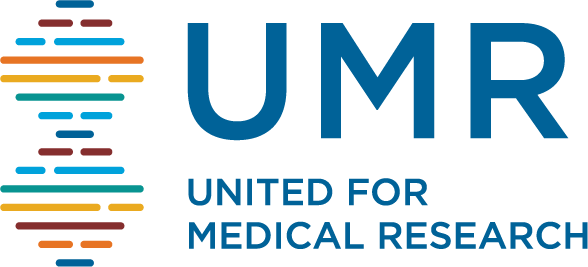September 12, 2016
New Podcast Series Highlights Biomedical Innovations on the Cusp of
Saving Lives and Saving Money
WASHINGTON, D.C., – United for Medical Research today launched a new podcast series, Amazing Things, that tells the stories of biomedical innovations fueled by NIH-funded research that are on the cusp of changing lives and saving healthcare dollars. UMR, a group of scientific research institutions, patient and health advocates, and life sciences industry, further called on Congress to take the steps necessary to ensure strong funding of medical research in FY17 and beyond.
“There is no better example of the return on America’s investment in the National Institutes of Health than discoveries that lead to improved health, longer lives and the ability to overcome seemingly insurmountable odds. As the podcasts illustrate, NIH funding is enabling truly amazing things,” said UMR President David Pugach. “Yet, these stories also highlight the fact that this type of work only happens when researchers have access to reliable funding over many years.
“As Congress focuses on the work of funding the government beyond September 30th, we urge Members to consider the significant, negative impact that long-term continuing resolutions, government shutdowns and sequesters have on medical research,” he said. “It is essential that Congress continue the momentum begun last year to put the NIH back on a growth path after more than a decade of flat funding. Strong annual appropriations along with the type of surge funding included in Cures legislation are both necessary for the NIH to catch up from the past and keep up with biomedical needs and opportunities.”
The initial five podcasts feature the work of NIH-funded researchers at Boston University, Harvard University, Northwestern University, Vanderbilt University and Washington University in St. Louis:
- A bionic pancreas for people with type 1 diabetes (link);
- A new approach for developing a potential treatment for Duchenne muscular dystrophy (link);
- A low cost minimally invasive universal cancer test (link);
- An artificial kidney that can alleviate the need for dialysis for people with kidney disease (link); and
- Cancer-illuminating goggles to improve cancer surgery outcomes (link).
Their life-changing and life-saving biomedical innovations will touch millions. They also have the potential to significantly bring down healthcare costs. In the case of kidney disease, the Centers for Medicare and Medicaid Services (CMS) spends around $35 billion each year to care for people with end-stage renal failure – more than the entire NIH budget. The artificial kidney in development could significantly reduce this burden, while also enabling people with kidney disease to regain their independence and return to work – something impossible if they are tethered to a dialysis machine three times a week.
The Amazing Things podcasts are available at www.AmazingThingsPodcast.com as well as on iTunes, Google Play and Stitcher. Fact sheets on the innovations and the role of NIH research funding are available on the Amazing Things website. New podcasts will be added periodically.

